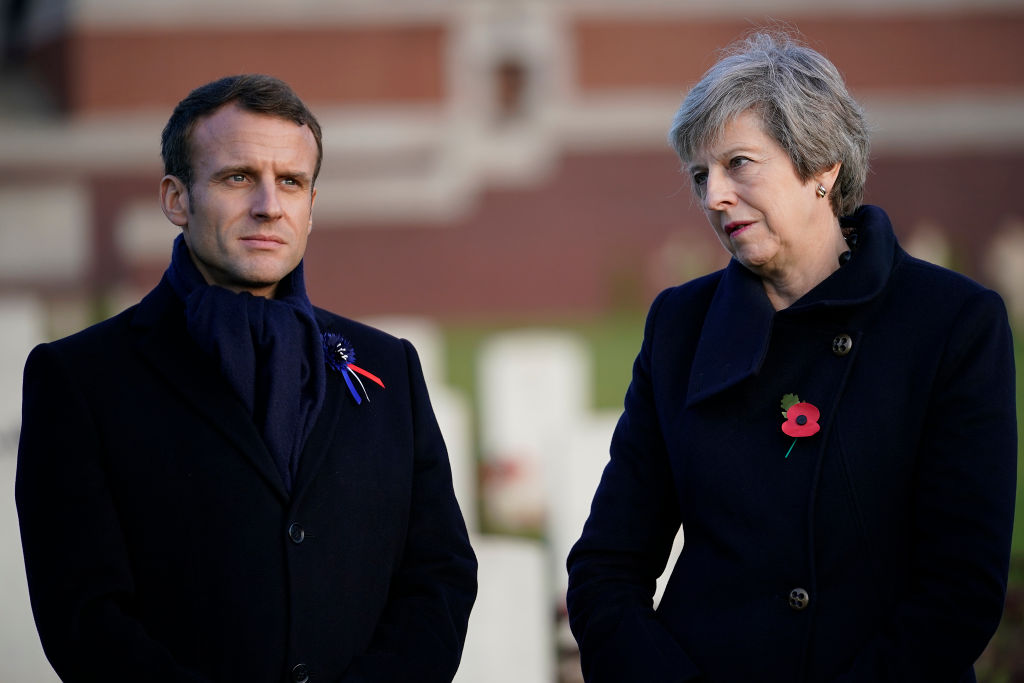In this the 115th anniversary week of the Entente Cordiale, the French president and the British Prime Minister will meet twice, today at the Elysee Palace and tomorrow at the European Council in Brussels. But neither of those meetings will be to celebrate their countries friendship. When May goes to Paris and then to Brussels, she will instead be a woeful supplicant in the Brexit feuilleton. And the one thing the vicar’s daughter can count on is that she will be subjected to a severe bout of Macron lesson-giving and severe sermonising, as is his wont.
And yet Macron is hardly in a position of strength. Both leaders are battling domestic crises that come to a head this week. The British PM’s Brexit woes are only too well known. But yesterday, France saw the winding up of the Grand Débat National, established to deflate the yellow vest movement and consult the people on societal change. And after a three month national consultation expectations for substantial reform are bearing down on Macron. With his poll ratings still under 30 per cent, the yellow vest movement into its 23rd week, 9000 arrests, 12 indirect deaths and costs calculated by the Finance Ministry at 0.2 per cent of GDP, the French president has by no means emerged into sunlit uplands. The Great Debate – which came at a cost of £10.3m (12 million euros) – has thrown up very contradictory and politically difficult demands: lower national taxes, but higher public spending and a call to reinstate a tax on the rich, which Macron cancelled after coming into office. Like the cahiers des doléances that preceded the 1789 French Revolution, Macron cannot afford to ignore the people’s voice or else the lull in the yellow vest movement will presage a greater storm.
Moreover Theresa’s Brexit problems are also Emmanuel’s. A no deal is calculated by a recent German Halle Institute for Economic Research report to produce 50,000 job losses in France, and in areas that are already radical by tradition; farmers, wine growers, lorry drivers are likely to be affected. This would come on top of France’s poor economic performance: nine per cent unemployment, a budget deficit likely to breach the EU’s three per cent rule, public debt at 100 per cent GDP and growth about to fall below Britain’s. This is not to mention other Macron problems such as the botched Benalla Affair over the president’s personal security, in which Macron’s chief of staff at the Elysee is now under judicial investigation for perjury.
So when Theresa meets Emmanuel she should not be too bashful. Emmanuel may posture and ape de Gaulle’s famous ‘nons’ to appear forceful for his domestic audience, but he will not dare break the EU consensus which will strive to avoid ‘no deal’. Nor will he wish publicly to contradict Angela Merkel’s softer approach, for if he has any hope of bringing in his ambitious European reforms he cannot afford to cross Germany. In fact, Emmanuel would do well to remember that since the birth of modern Germany in 1870 there have often been three in the Franco-British relationship.
Professor John Keiger is a former research director in the Department of Politics and International Studies at the University of Cambridge







Comments